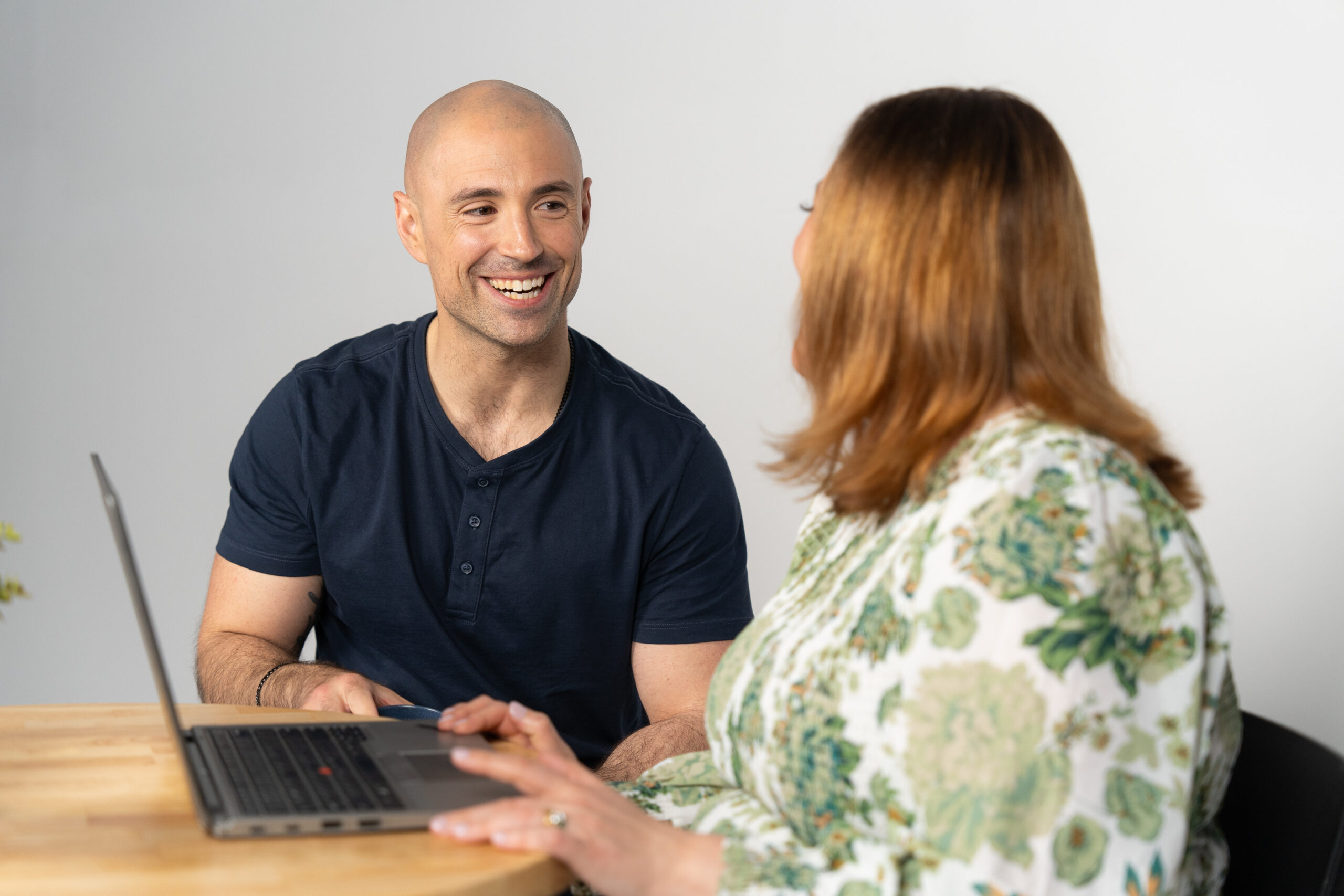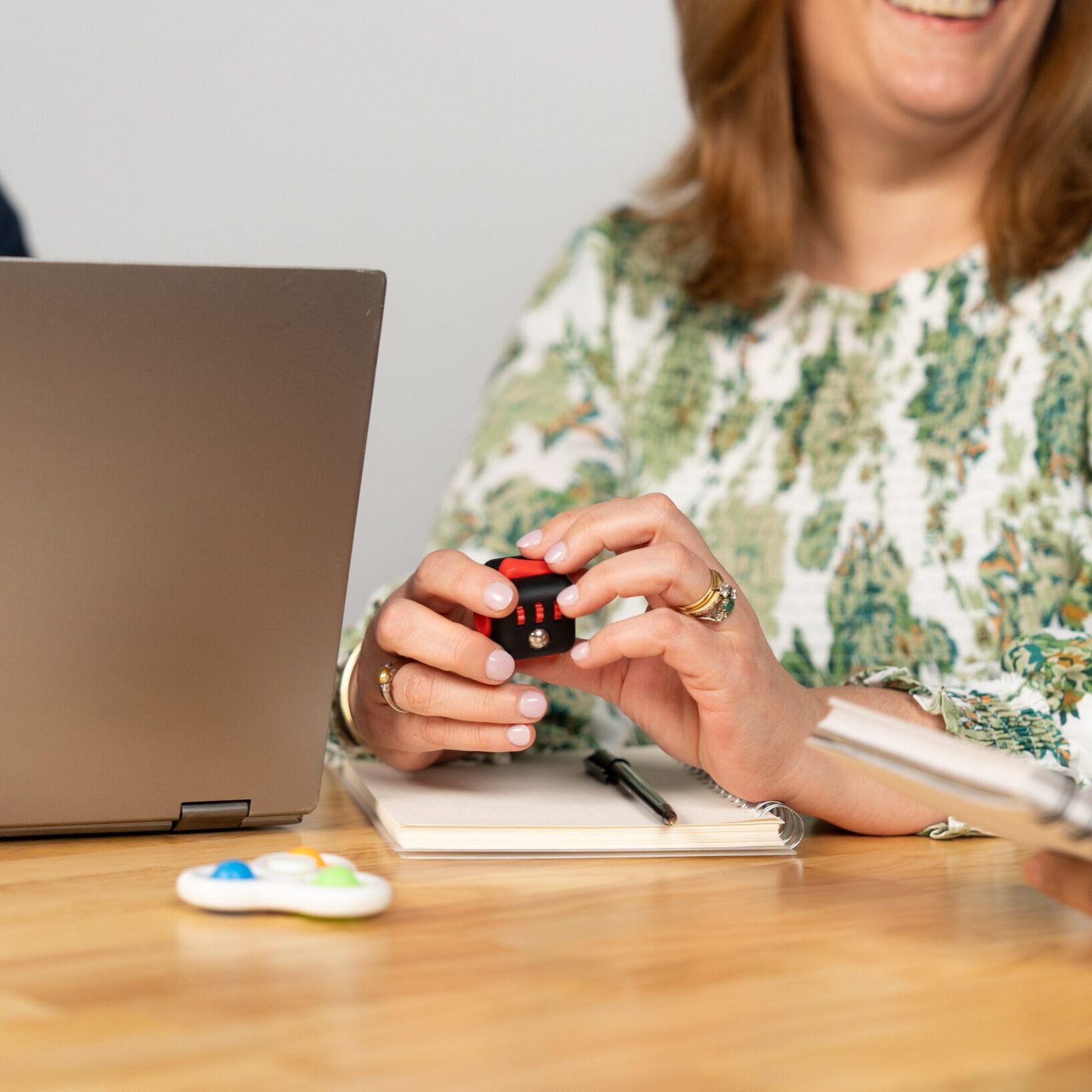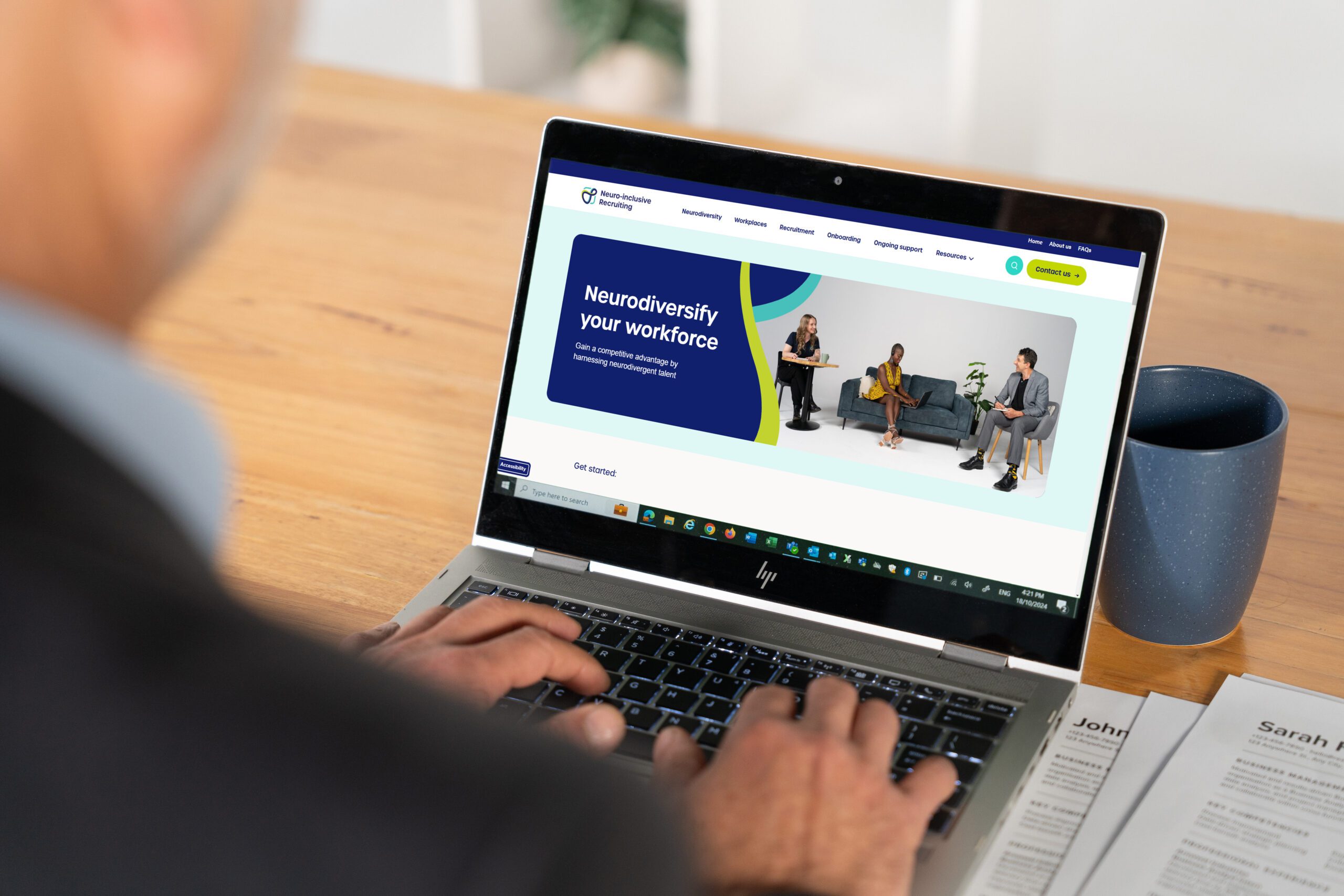Showing my work made all the difference
Written by Hannah Badenhop, Community Engagement and Branding Officer
Hannah, a communication design graduate, has been working in creative roles throughout her career. As a neurodivergent employee, Hannah shares her experiences and benefits of exploring assessment methods that showcase a candidate’s skills.
As a creative I feel that showing my work in a hands-on, tactile format is the best way to demonstrate my skills. Being able to physicaShlly bring in some of my past projects and show them to the assessors is particularly effective as I am able to speak directly to the past piece of work I have created. Some of the pieces of work I presented included past print projects, social media campaigns, and research projects.
I had an experience where I had prepared a portfolio to take to an interview for a role I had applied for. Throughout the interview, the assessors did not ask me for my portfolio. As I was passionate about this opportunity, at the very end of the interview I asked if I could show my portfolio. As I proceeded to present my work, I immediately felt a change from the assessors in the level of excitement towards my skills and past work. The panel then proceeded to look through some of my past work, and I was able to proudly explain the project and the thought and technical skills that went into making the work.
I was successful in achieving that role, and I do believe that having the courage to show my work contributed to my success. The portfolio acted as proof that I have the skills I say I have and gave me an opportunity to further explain my work.
For me, it is also a way of showing the creative side of my personality. Some of my past projects are centered around topics of interest which can give the employer an insight into your passions and values. This is what I think helped me secure the role as a key member of the panel seemed super enthusiastic about a particular piece of work. I also have an opportunity to present my work in a way that reflects my creative style.
As a neurodivergent job seeker, I found comfort in being able to have breaks in giving eye contact as the assessors were looking at my portfolio instead of directly looking at me.
I would encourage employers to look beyond the traditional recruitment methods and explore how candidates can demonstrate their skills. I think that bringing in a portfolio is applicable to many roles including hairdresser and tiler not just graphic design or photography.
Being able to bring examples of my work to an interview has allowed me to confidently demonstrate my skills and helped me secure a role I was passionate about.







